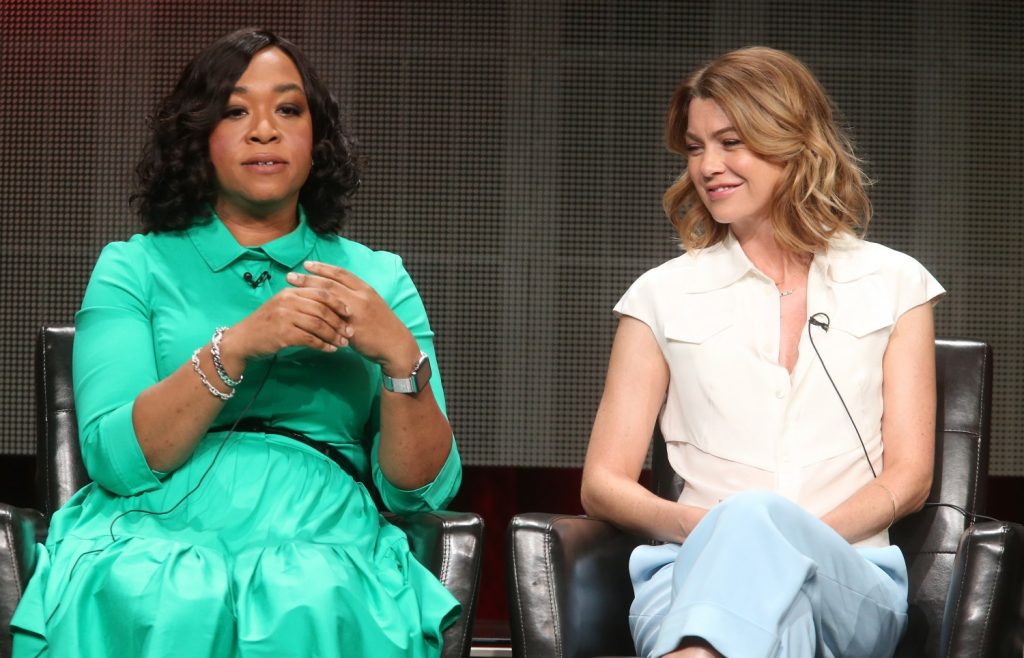Ellen Pompeo has been the star of the hit show “Grey’s Anatomy” since 2004. As the main character in a long-running and popular show, you probably wouldn’t be surprised to learn that Pompeo earns the big bucks. Just how big, however, might surprise you.
What’s more, she didn’t always command her current salary and wasn’t sure if she was being paid fairly in comparison to her male co-star, Patrick Dempsey. In a recent interview with The Hollywood Reporter, Pompeo opened up about her fight to get paid what she felt she was worth and the nature of the gender pay gap in her industry.
In late 2017, Pompeo signed a new deal that makes her the highest-earning actress in dramatic television. According to her interview with The Hollywood Reporter, Pompeo is set to earn $575,000 per episode as well as a seven-figure signing bonus and two full backend equity points on the show, which will net her another $6 to $7 million. She will also get a producing fee.
Pompeo says that for years, Dempsey was used as leverage against her asking for more money. They told her that they didn’t really need her because they had her co-star.
She explains that as the title character, she felt she deserved to earn the most.
“At one point, I asked for $5,000 more than him just on principle, because the show is ‘Grey’s Anatomy’ and I’m Meredith Grey. They wouldn’t give it to me. And I could have walked away, so why didn’t I? It’s my show; I’m the number one. I’m sure I felt what a lot of these other actresses feel: Why should I walk away from a great part because of a guy? You feel conflicted but then you figure, ‘I’m not going to let a guy drive me out of my own house.'”
When Dempsey eventually left the show, its ratings actually spiked, disproving the network’s argument that he was necessary to the show’s success. However, that didn’t stop the powers that be from immediately suggesting new male leads to replace Dempsey.
Pompeo credits the show’s creator, Shonda Rhimes, with helping her negotiate a deal she would be satisfied with. She was clear with Rhimes that because the show prevented her from stretching her wings creatively with other projects, she needed to be financially incentivized. She also wanted a bigger role as producer, something that gives her greater career satisfaction than acting.
The actress also went on to contextualize her decision to ask for an increased compensation package within the recent “Time’s Up” movement. The initiative was launched by more than 300 women in Hollywood to fight sexual harassment and gender discrimination.
“In the last few weeks, a lot of us actresses in town have been having these meetings [as part of the Time’s Up initiative]. We’ve been sharing stories and trying to figure out how we can promote change and use our voices to help other people. And I’ll tell you, sitting in rooms full of Oscar-winning actresses listening to how they’ve been preyed upon and assaulted is frightening. And it confirmed that my path really was the right one for me, because I’ve chosen to financially empower myself so that I never have to be ducking predators and chasing trophies,” she said.
How Can You Negotiate A Higher Salary?
So, what can the average person learn from Pompeo’s story? For one thing, it’s important to arm yourself with facts to back up your case. In the interview, Pompeo says that learning that “Grey’s Anatomy” has generated nearly $3 billion for Disney gave her kind of concrete evidence to demonstrate the value she brings to the company. You can copy her strategy by presenting your boss with verifiable examples of your contributions, such as measuring metrics like how your sales contributed to the company’s bottom line.
When negotiating at work, it’s also important to keep in mind your total compensation package. Not all rewards have to be purely financial. For example, just like Pompeo wanted to have a larger role in production, maybe you could ask for a new title and new responsibilities that will help your career growth. If your boss is unwilling to up your salary, they may be more amenable to doling out other perks, like more vacation days or the ability to telecommute sometimes.
Finally, you have to be willing to ask in the first place. Pompeo notes that while she was initially hesitant to ask for more because she didn’t want to appear greedy, she realized her male counterparts would likely not have the same concerns about advocating for themselves in the workplace. And this lesson doesn’t just go for Hollywood. In any industry, asking can be half the battle. If you don’t bring it up, it may not be on your employer’s mind.









